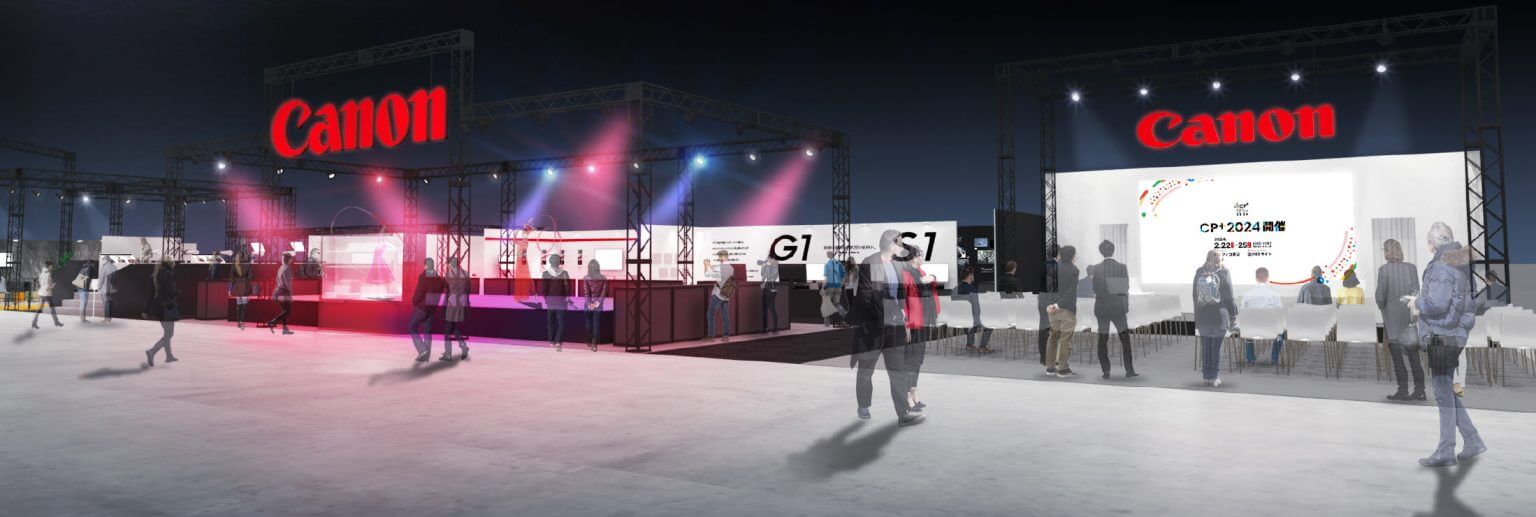Phototrend, a French internet publication interviewed Canon's executives. Canon said a lot on a wide-ranging bunch of subjects. I'm just going to report and let you come to your conclusions.
Canon mentioned that they hold a 48% market share globally but stated that it's impossible to determine what their full-frame market share is, and that the data doesn't exist globally.
Canon also mentioned that they are looking to expand their APS-C lens lineup.
About third-party and RF lenses it sounds like Canon is specifically looking for third parties to fill lineup holes they have no interest in filling themselves, but as should be expected it sounds like both parties are under non-disclosure agreements.
I want to clarify that as we speak, there are no third-party RF lenses with autofocus available. As you know, we have not adopted an open strategy.
That said, although we have more than 40 lenses available in our catalog, we need diversity in our offering to satisfy customer needs. This means that we are currently communicating a lot more than last year with third-party manufacturers.
All I can say for now is that we have a confidentiality agreement with other manufacturers regarding the type of lenses to be released or their positioning in the market. But I can't say anything more.
You may be the hundredth person to ask me this question about the RF mount and third-party optics manufacturers.
Canon also mentions that they don't think third-party companies can make lenses as good as Canon can.
From our side, we have all the information related to the body, including the specifications and optical performance of the lens. So I think there is a limit to what a company that only makes lenses can do.
Canon seems to hint at more Z power zoom lenses, as much as Canon CEOs hint at anything
Now, after this launch, we will once again look to our consumers and listen to them to determine what the right product and the right combination of technologies might be.
Canon goes on to mention their work in AI and also virtual reality and how they feel that will be in the future. Without a doubt, I see a lot of virtual reality patent applications from Canon, dealing with augmented reality or headsets. Probably nearly as much as I see them working with automotive systems. I'm also curious why they never mention their work in automotive, but that is probably not as cool as new AI and Mixed/Virtual reality topics.
Canon seems to not be that interested in global shutters in Canon's camera lineup.
there are negative points and the image quality is affected. Sensitivity management is not very good and the dynamic range is less extensive. And I think we would have difficulty optimizing this, because of the very complex structure of this type of sensor.
One thing I agree with in terms of global shutters is what they stated here about professionals needing global shutters;
if we have to integrate this into our flagship product, our flagship , we want to have complete technology. philosophy.
For the most part, I never thought Canon chased specifications that much – with image quality or camera quality weaknesses. Outside of a few engineering flubs, their cameras have mostly tried to march forward in terms of capability and in conjunction with that – their expectation of image quality. I have long held that as a deep philosophy in Canon (and for that matter – Nikon as well).
To wrap up this article;
Speaking of models, what is the status of the EOS M mount? Do you have any information on this system?
Tetsuji Kiyomi: Last year we launched the R50 and R100. However, EOS M bodies are also very compact. Maintaining commercialization depends on the market today.
I think Canon should speak far more clearly on this subject, but here we are. You can read the full article here from phototrend. They also did quite a bit of CP+ articles from various manufacturers, well worth the read.
Source: Phototrend.fr


But he seems to confirm that there are deals coming, especially for RF-S lenses, which has got to be a good thing.
There is enough vagueness in their responses to read almost anything into it.
I disagree. In my view, he was pretty clear.
Canon exec: But again, it all depends on what the customers want, what they are asking for.
Im pretty sure many asked for constant aperture or higher quality zooms already.
Canon exec: But if you look at full-frame lenses, we have an extensive range, and they can all be used on APS-C bodies.
Same old answer. We dont care, just use full frame lenses.
Fuji has concentrated on high-end APS-C users, with a very nice range of constant aperture and high quality zooms. They have been and remain a minor player in the digital camera market, struggling to break 6% share as Canon hovers close to the 50% mark.
Yes, the same old answer: Canon knows the market better than you.
Is Phototrend reliable? Who knows...
So it’s not really a matter of them being reliable, it’s a matter of how they parse the answers. And how well google translate works when Anglophones want to know what phototrend reported!
So why "we're not adopting an open strategy"? Just let third party companies humiliate themselves with horrible lenses, with slow and inconsistent AF and poor optical performance.
Geez...
What does this mean?
I wish they'd make an R50 sized body with high-end specs.